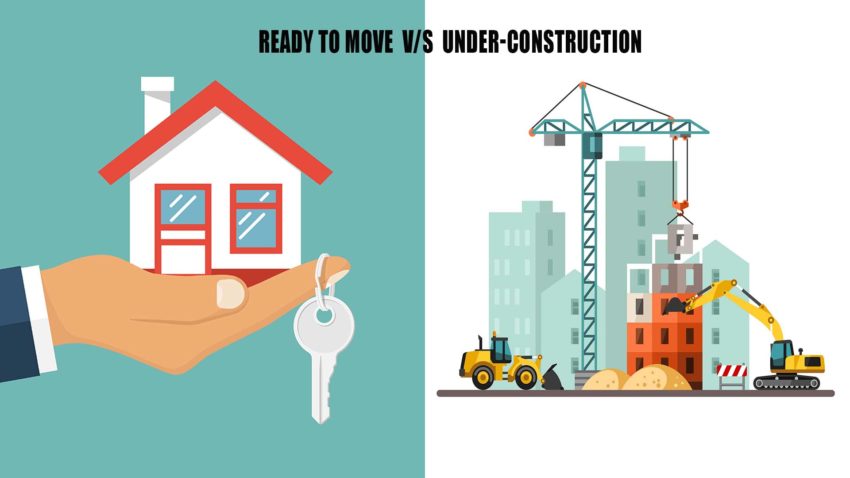Buying a home entails a lot of paperwork and hassles, however, a question that frequently pops up in the mind of a potential home buyer is whether to buy a ready-to-move-in flat or an under-construction property.
Buying a home entails a lot of paperwork and hassles; however, a question that frequently pops up in the mind of a potential home buyer is whether to buy a ready-to-move-in flat or an under-construction property. The Real Estate (Regulation& Development) Act 2016, or RERA, has been one of the most significant reform for home buyers for there have been several positive developments since its introduction.
With this article, we will try to highlight the positives and negatives of opting for a ready-to-move-in property and an under-construction property.
Ready-to-move-in property
As the name suggests, a ready-to-move-in flat is a property where the home buyer can move in without having to deal with all the prerequisite steps of buying a home. The first and foremost upside of opting for such a property is that it helps the buyer to avoid bearing costs associated with rental accommodation. It also helps buyers avoid delays in possession which often is the case with under-construction projects.
A ready-to-move-in flat also helps the buyer check the infrastructure and the surrounding of the house. A ready-made house not only saves the buyer from the waiting period but also allows them to take a look at the design of the house before closing in on it, given the huge number of inventory in the sector.
A ready-made flat also saves the buyer from paying GST (goods and Services Tax). According to the new GST rates, houses priced above 45 lakhs in metro cities will have a GST rate of 5% from 12% earlier, while, houses smaller than 650 sq ft and priced below 45 lakhs in the metro cities have a GST rate of 1% from 8% earlier.
In non-metro cities houses smaller than 960 sq.ft. and priced below 45 lakhs have a GST rate of 1%.
While in the resale housing market, ready-to-move flats give the home-buyers a chance to skip the risks of buying an under-construction property such as a delay in possession, home-buyers often deter from choosing ready-to-posses flats due to the 10-15% cost premium attached to this kind of properties.
Buying a ready-made flat also means that the buyer should have instant funding, which may not be viable for a lot of home-buyers. Apart from financial complications, the buyer also does not have the flexibility to choose the floor and the configuration as compared to an under-construction property. Therefore these flats are not an ideal choice from an investment and appreciation viewpoint.
Under-construction property
While ready-to-move-in properties require the home-buyer to pay for the entire house readily, buyers opting for an under-construction property have some amount of leeway. Banks and housing finance companies often give attractive customized deals to home buyers for payment. An under-construction-property also gives buyers capital gains and income tax rebates if one takes a loan for home buying.
However, people often remain wary of opting for such properties because of the risk of delayed possession, cancellations and bankruptcies. However, with Real Estate (Regulation and Development) Act, 2016 in place, home-buyers no longer have to worry about delayed possession.
The Real Estate (Regulation and Development) Act 2016 (RERA) was put in place, to impose a sense of discipline in the Real Estate sector. By offering home-buyers a coherent redressal system, RERA ensures that builders are held accountable for all their promises and offers.
The Act has also addressed the issue of funding diversion through the provision of escrow accounts to ensure that the money raised for a certain project is deployed in the same one and not diverted to other projects. There are several other such provisions that safeguard buyers as well as developers from the risks of under-construction properties. Thus, if anyone finds a RERA-registered project, he should opt for it.
Points to consider before finalizing a home
Apart from financial ability, the decision to buy an under-construction property or a ready-made property should also be based on factors such as locality and livability index of the area. Home-buyers should always opt for RERA registered properties. Projects that started after the RERA period have a higher probability to get proper approvals for its completion. Also, if a particular project has a lot of unsold inventory, home-buyers should avoid such projects as there could be some underlying issues. Home-buyers should also ask for reviews from other homeowners in the area before zeroing down on a project.

